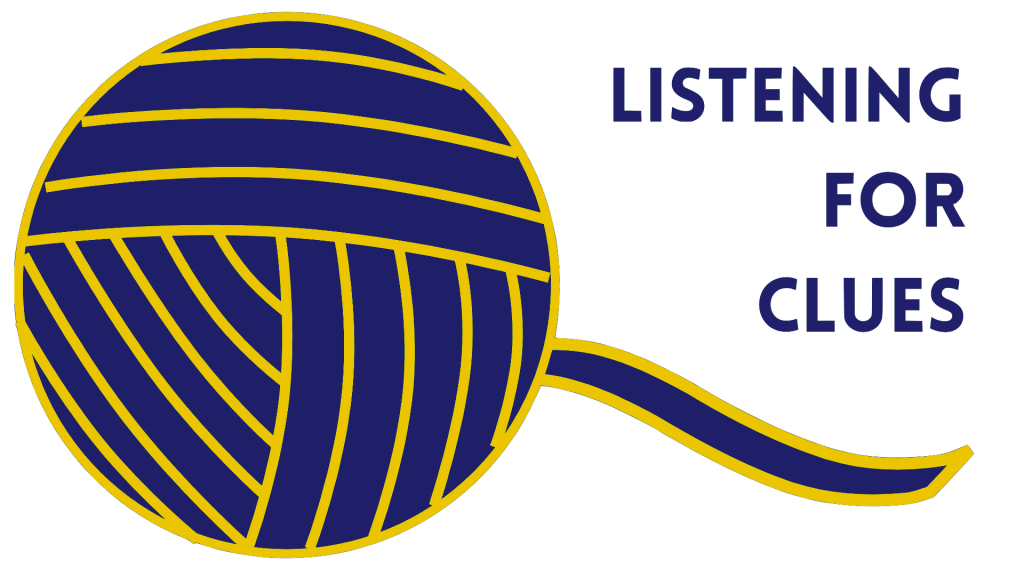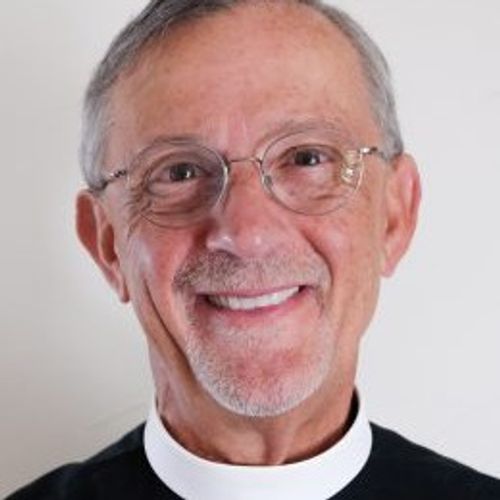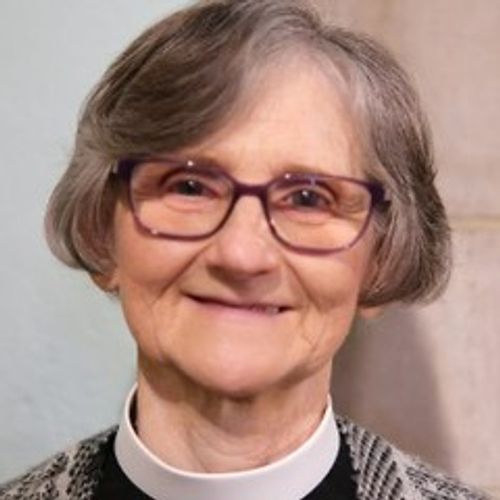Becoming Community with Music
Becoming Community with Music
We are honored to have Pat Aaron, who has been teaching music to children in public schools in Western Maryland for several decades, as she talks about the power of music to create relationships and community.
00:00 Becoming Community with Music
00:00 Introduction
01:18 Inspired by a Teacher
02:13 It's All About the Students
03:52 Favorite Interactions with Students
04:59 How Is Music Life-Changing?
07:55 Relationships
08:31 Personal Growth
09:57 Community Symphony
11:30 Connection with Spiritual Life
14:31 Final Words of Wisdom
15:29 Thanks
Pat Aaron is an orchestra teacher in the Allegany County Schools. She works with students in grades 4 through 8. She is originally from Lima, Ohio where she played as a student in the Lima Symphony. Pat has been an orchestra teacher in Cumberland for 37 years. She co-directs the Allegany Community Symphony Orchestra with two of her colleagues. She enjoys playing chamber music with friends and performing at her church.
Listening for Clues is pleased to present our new series, "Good News!" featuring weekly conversations with people who are making a difference, large or small. We want everyone to know what they are doing, why they are doing it, and how. So, our listeners and viewers can experience the good news and go out and make a difference themselves.
Listening for Clues invites you into conversations that discover clues, rather than solutions to life’s problems. Join the journey with Jon Shematek and Lauren Welch, Episcopal deacons, as we explore whatever lies ahead. Check our website Listening for Clues.
© 2025 Listening for Clues
Transcript
Welcome to Good News, being brought to you by Listening for Clues.
Lauren:We are Lauren Welch and Jon Shematek, Deacons in the
Lauren:Episcopal Diocese of Maryland.
Jon:We sure are.
Jon:And today we have a very special guest, Pat Aaron.
Jon:Pat is an orchestra teacher in the Allegheny County, Maryland schools.
Jon:She works with students in grades 4 through 8.
Jon:She's originally from Lima, Ohio.
Jon:Where she played as a student in the Lima Symphony.
Jon:Pat has been an orchestra teacher in Cumberland, Maryland for 37 years.
Jon:She co-directs the Allegheny Community Symphony Orchestra
Jon:with two of her colleagues.
Jon:She enjoys playing chamber music with friends and performing at her church.
Jon:Welcome, pat.
Pat:Thank you.
Pat:It's good to be here.
Lauren:It's so good to have you with us today, Pat.
Lauren:I've been looking forward to it.
Lauren:You have been teaching violin for a long time.
Lauren:Tell us what what inspired you to start playing to begin with.
Pat:Well, I think the first thing that inspired me were teachers
Pat:that I had as a young person.
Pat:It's usual in school systems for a music teacher to come maybe with other students
Pat:and play and invite students to begin an instrument that often happens in
Pat:about the fourth grade or fifth grade.
Pat:And so that was, that was my introduction to Beginning an instrument and it's
Pat:been a lifelong activity and, and one that's been very rewarding.
Lauren:So tell us about your the children that you teach.
Pat:Well each year in Allegheny County, we start students in the fourth grade,
Pat:and we come and play a concert much like I heard when I was in the fourth grade,
Pat:and students have that opportunity to begin any instrument that they choose.
Pat:There, there are string instruments that are like violin, viola, cello
Pat:based, and then there also are woodwind and brass and percussion instruments,
Pat:so they have Oh, maybe 13 or more different instruments to choose from.
Pat:In our county, we take the faculty around to each elementary school
Pat:and perform a concert for them.
Pat:And I do not know how the kids choose the instrument they do because they
Pat:are all such wonderful choices.
Pat:But they do end up choosing the one that speaks
Pat:to
Jon:So Pat, do I have this right?
Jon:You actually then go from school to school?
Jon:Performance and then to actually do the lessons as well.
Pat:Yes I teach at four different schools and I usually visit three
Pat:schools each day of the school year and, and have about a half hour
Pat:lesson with the students twice a week.
Pat:And it is Some of the favorite times of the day for those
Pat:for those students often.
Jon:That's great and you teach other than violin or you're
Jon:teaching primarily violin to the
Pat:students?
Pat:I teach violin and viola, cello and bass.
Jon:Oh, so the strings.
Jon:Yeah, wow.
Jon:That's great.
Lauren:So how many years has it been?
Pat:I think about 37.
Pat:Yeah,
Lauren:so you have a lot of stories to tell us.
Lauren:What, what are some of your favorite interactions with the students?
Pat:It's just all the students that are just Average students
Pat:who just enjoy playing.
Pat:There are the students that excel beyond all their other peers.
Pat:And often people ask me that question, you know, what's the student
Pat:that plays the best or whatever.
Pat:But I think the ones The students that I enjoy are just all of
Pat:them at whatever level they are.
Pat:We just we just enjoy music together.
Pat:And one, one of the jokes that the kids will sometimes say is, you know, can
Pat:we just stay here all day and play?
Pat:And I'll say, well, yeah, wouldn't that be nice if you could just spend
Pat:the whole day playing the violin?
Pat:And then, and then I kind of laugh at them and say, oh, wait a minute.
Pat:That's what I do.
Pat:Going around playing the violin or viola or cello or bass.
Pat:And you know, it's just, it really is a wonderful position to have to be able to,
Pat:to play with students throughout the day.
Jon:What would you say that the role of music in actually changing their
Jon:lives or their perspectives might be?
Jon:Aside, I mean the enjoyment of course is just really wonderful, but is there
Jon:something more you could say about that?
Pat:Yes hmm.
Pat:The students get so many things from playing an instrument.
Pat:This happens in other disciplines as well, certainly in sports, and,
Pat:and in their other academic classes but to, to learn how to engage
Pat:with other students as a team.
Pat:You know, in our orchestra, we have to listen to each other
Pat:and learn to work together.
Pat:So you gain all kinds of abilities to, to work together and to, to
Pat:play together and to study together.
Pat:And that is an opportunity to learn how to do those things that are
Pat:going to last their whole lifetime.
Pat:Also you know, playing a string instrument involves practice.
Pat:And practice is something that you have to do in everything to be successful.
Pat:So building that skill of learning how to practice something daily and take
Pat:it from where you are to where you want to be is a skill that works not only
Pat:for music, but all the students life.
Lauren:Pat, what surprised you the most in your years of teaching students music?
Pat:Maybe how much it builds their self esteem.
Pat:Students will start a piece and, and they'll say, Oh, I can't do this.
Pat:I you know, this is, this is too hard.
Pat:And, and you just kind of start from where you are with the student from
Pat:where the student is and, and just work.
Pat:a little at a time and pretty soon that student is playing the piece
Pat:without mistakes with so much ability and emotion and we'll do a concert
Pat:and they'll finish the piece and it's like, oh, that was my favorite piece.
Pat:And they'll want to play it all the time.
Pat:And, you know, from the beginning they thought.
Pat:It wasn't even possible.
Pat:And then they arrive at such success .It's surprising, but it
Pat:happens over and over and over.
Pat:And, and the best part is that it builds that confidence within the
Pat:student, knowing that they started from something that they weren't
Pat:sure they could even do, and then knowing how they can be so successful.
Jon:That must be just an amazing feeling for you too.
Pat:It is.
Pat:I, you know, I feel like I have the best job in the world being
Pat:able to take students from actually the very beginning of something.
Pat:This is how you open your case.
Pat:This is how you hold your instrument to, to being so
Pat:successful that they can express themselves through that instrument.
Jon:I just love all the life lessons that you kind of listed about, you
Jon:know, the teamwork and the relationships where Lauren and I get very focused on
Jon:relationships in this series as well.
Jon:But, you know, they're listening to one another like we do and so it's
Jon:that and then the discipline of practice and working at something and
Jon:getting the building one's confidence.
Jon:Those are great things.
Jon:Has this experience of teaching music to young children changed you in any
Jon:really fundamental way over the years?
Jon:Have you grown in some way yourself?
Pat:Oh, absolutely.
Pat:Sometimes I'll meet students that I had, like maybe in my first year
Pat:of teaching, and they'll say, Oh, I remember you, and I think, Oh my
Pat:goodness, what do they remember?
Pat:Because, you know, when you first start, you have a lot of
Pat:enthusiasm, and that's wonderful.
Pat:But, but not much experience and as I have grown as a teacher I have changed
Pat:and there are things that I think I do better than I did the first year.
Pat:I still have a lot of enthusiasm, but, but I think that maybe one of the, the
Pat:biggest things that I've learned is to let all the students make their own choices.
Pat:And even if that involves...
Pat:Starting an instrument and then stopping at some point.
Pat:Then later on, maybe they will start again, or the things that they've learned
Pat:will help them in other endeavors in their life all those life skills that they've
Pat:been learning about studying something or practice or even just the joy of
Pat:music can come back later in other ways, like joining their church choir or just
Pat:listening to music or going to a concert can enrich their lives, even if they
Pat:don't play an instrument all their life.
Lauren:So Pat, you're also involved in a community symphony,
Pat:right?
Pat:Yes, yes.
Pat:And that is, that's a, a wonderful thing too.
Pat:You know, I, I start students in the fourth grade and then they move up.
Pat:I teach them through the eighth grade, then they go on to high school.
Pat:But then often for students and, and just adults in the community or other
Pat:faculty members, it's nice for them to have someplace to play as they gain
Pat:experience and as they grow as a person.
Pat:And so we do have a community orchestra in Cumberland that,
Pat:that is all of those people.
Pat:There are advanced students from my middle school orchestra that play as they gain
Pat:experience as well as high school students that come back that want to continue
Pat:playing in a symphony orchestra they do have, they do have string orchestras in
Pat:the high schools in Allegheny County, but but to play with a symphony orchestra
Pat:that has winds and brass and percussion and, and strings all of those together
Pat:this is an opportunity for them to do that, as well as community members that
Pat:have just played in their lifetime and want to have an opportunity to play.
Pat:So, It's a wonderful experience to kind of be involved in all of those
Pat:levels of teaching and conducting.
Pat:And so we have a wonderful time getting together.
Pat:We rehearse once a week as a, community orchestra.
Pat:And then we do two performances during the year.
Pat:One's usually a Christmas concert, and then the other is a concert in the spring.
Jon:Pat, the other thing you mentioned in your bio is that
Jon:you do perform at your church.
Jon:And I'd like to hear a little more about that, but also to what extent
Jon:your musicianship or your teaching experience has involved something of
Jon:the spirit or your spiritual life, if you're able to talk about that.
Pat:Yes I do often play at my church.
Pat:I have a pianist friend that, that I play with.
Pat:And, and on other occasions I play in a quartet or a a string trio,
Pat:which is piano, cello, and violin.
Pat:So I have all those kind of chamber opportunities.
Pat:But I do like your question about how that affects my spiritual life.
Pat:Playing music.
Pat:can be a very spiritual thing.
Pat:It's a way to kind of lift myself and, and I think sometimes those who
Pat:listen into a spiritual place sometimes playing it's hard to explain sometimes
Pat:playing is, can be a very emotional
Pat:I don't know, spiritual experience.
Pat:So you, so you play and you listen and you connect with the
Pat:people that are listening to you.
Pat:And you kind of can reach them by playing to them and for them.
Pat:And No, it is, it is a difficult thing to explain, but, but
Pat:not so much to experience.
Pat:I often can see that I'm connecting with, with people as I play.
Pat:And And one of the neatest experiences is finishing a piece and hearing or feeling
Pat:the calmness that follows the piece.
Pat:And sometimes that's the way that you know the feeling within yourself
Pat:and then the feeling within those who have experienced the music.
Jon:Yeah, you know, Pat, I think that is so well said, , you're trying to
Jon:find the right words, and I think that actually was a demonstration that this
Jon:kind of connection is beyond words.
Jon:It's wordless
Lauren:to continue what you're saying, Jon, because I've experienced Pat playing
Lauren:at retreats and what you were saying and what I was hearing, Pat, is that you
Lauren:are bringing community together as one.
Pat:Yes.
Pat:And in fact, I think sometimes we've had the opportunity to pray
Pat:with and for each other, and one of my favorite ways to do that.
Pat:Is through music just to play a piece and put my heart into it and then you
Pat:know, be able to reach and connect with those who are there present.
Lauren:So, Pat as we begin to wind up , is there anything else
Lauren:that you would like to share?
Lauren:Any words of wisdom for parents who may be wanting their children to be
Lauren:more interested in music or anything
Pat:like that?
Pat:Well, yes.
Pat:The thing that I think I would like to leave people with is that we all
Pat:know people who are in school at some level, whether they're our children,
Pat:or our grandchildren, or friends, or students from communities that
Pat:we're involved with, and I would just say to encourage those students to
Pat:do whatever is important to them.
Pat:So if they choose an instrument maybe once in a while ask them to play for you
Pat:or, ask them about their instrument and let them tell you about their classes or
Pat:any other activity that means something to them their sport or their math class
Pat:or their English class or whatever it is that speaks to them because
Pat:encouraging students is so important.
Pat:That's what helps them to be successful as they grow.
Jon:Thank you.
Jon:Thanks so much, Pat, for being here today.
Jon:It's been a pleasure meeting you and I wish I had had a music teacher like you
Jon:when I was a kid, because you're amazing.
Jon:Thanks so much.
Pat:That's one more thing that I could add is that it's never too late
Pat:to do something for adults to start a new language or to, to study an
Pat:instrument . All those things that keep your mind active and growing.
Pat:It's never too late to, to start an activity like that.
Jon:Amen to that.
Pat:Thank you.
Pat:Thank you.
Lauren:Jon and I also want to thank all those who are listening
Lauren:and watching with us today.
Lauren:We cannot do this without your participation.
Lauren:Please take a moment to comment, like, or share on all your social media platforms.
Lauren:This will help us to spread good news to even more people.
Lauren:And again, thank you for the gift of your time with us today.
Lauren:Until next time, peace and blessings.
Lauren:Good news is being brought to you by Listening for Clues.
Lauren:You can find us on our website, listeningforclues.
Lauren:com, our YouTube channel, our Vimeo channel, and just about every
Lauren:podcast platform that there is.
Lauren:Hope to see you soon.





